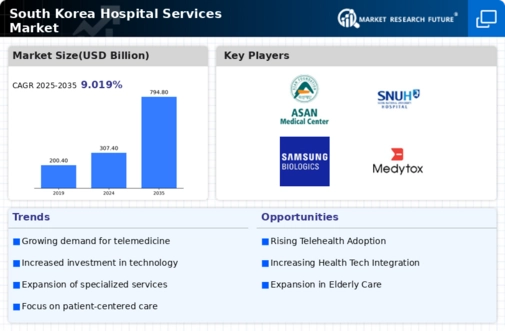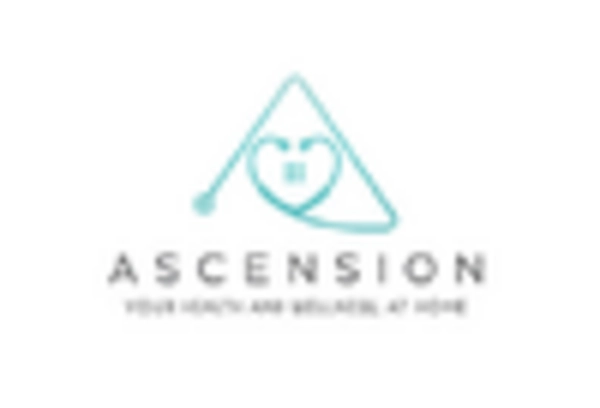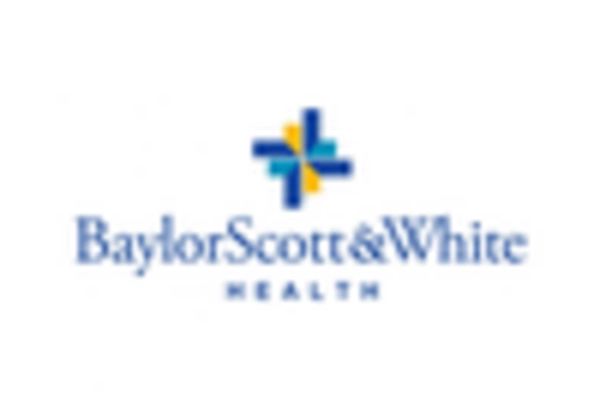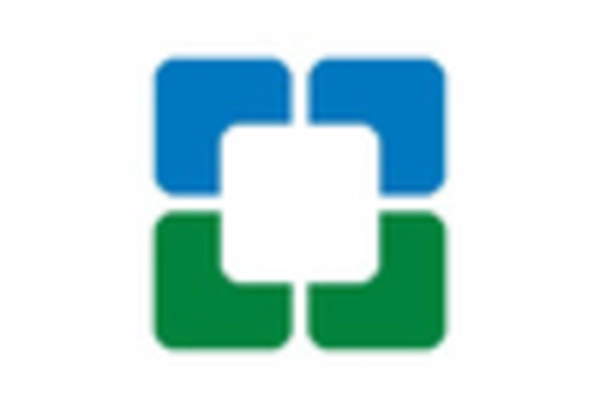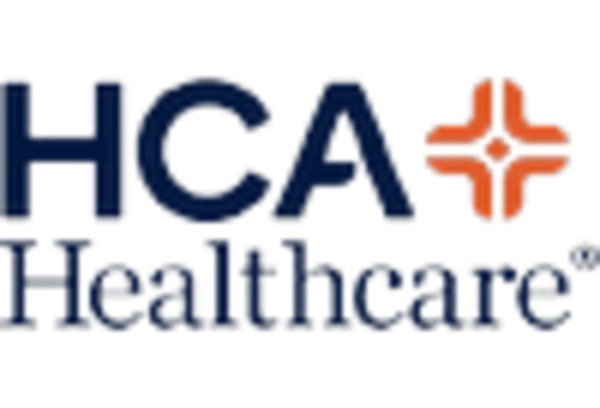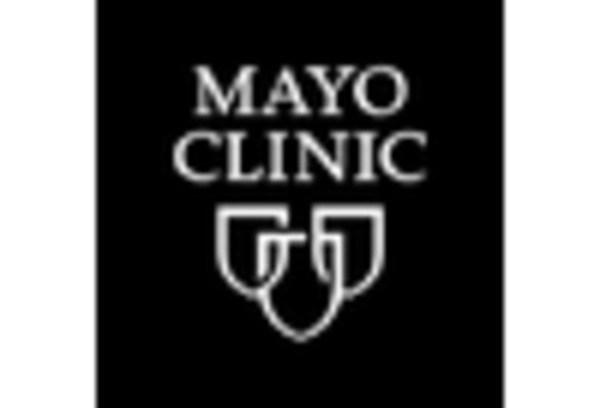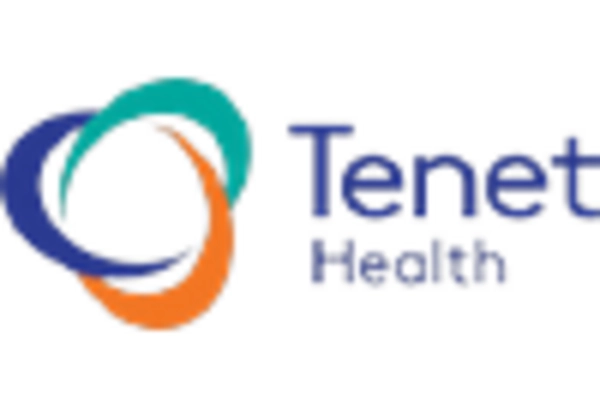Aging Population
The aging population in South Korea is a crucial driver for the hospital services market. As the demographic shifts towards an older age group, the demand for healthcare services increases significantly. By 2025, it is projected that over 20% of the population will be aged 65 and older, leading to a higher prevalence of chronic diseases and complex health conditions. This demographic trend necessitates enhanced hospital services to cater to the specific needs of elderly patients. Consequently, hospitals are likely to expand their geriatric care units and specialized services, thereby increasing operational costs and investments in healthcare infrastructure. The hospital services market must adapt to these changes to ensure adequate care and support for the aging population.
Rising Health Awareness
Rising health awareness among the South Korean population is driving the hospital services market. As individuals become more informed about health issues and preventive care, there is a noticeable increase in the demand for medical services. Public health campaigns and educational programs have contributed to this trend, leading to a greater emphasis on regular check-ups and early disease detection. By 2025, it is anticipated that the number of health screenings conducted in hospitals will rise by 25%, reflecting this growing awareness. Hospitals are responding by expanding their preventive care services and wellness programs, which not only enhance patient outcomes but also foster a proactive approach to health management. This shift is likely to create new opportunities within the hospital services market.
Technological Advancements
Technological advancements are reshaping the hospital services market in South Korea. Innovations such as telemedicine, electronic health records, and advanced diagnostic tools are becoming increasingly prevalent. In 2025, it is estimated that the adoption of telehealth services could increase by approximately 30%, allowing hospitals to provide remote consultations and follow-ups. This shift not only enhances patient access to healthcare but also optimizes hospital operations by reducing wait times and improving efficiency. Furthermore, the integration of artificial intelligence in diagnostics and treatment planning is expected to revolutionize patient care. As hospitals invest in these technologies, the overall quality of services is likely to improve, attracting more patients and increasing market competitiveness.
Government Healthcare Policies
Government healthcare policies play a pivotal role in shaping the hospital services market. In South Korea, the government has implemented various initiatives aimed at improving healthcare access and affordability. For instance, the National Health Insurance System covers a significant portion of hospital services, which encourages more individuals to seek medical care. As of 2025, approximately 97% of the population is enrolled in this system, leading to increased hospital visits and service utilization. Additionally, policies promoting the establishment of new hospitals and healthcare facilities in underserved areas are likely to enhance service availability. These government initiatives not only support the growth of the hospital services market but also ensure that healthcare remains accessible to all segments of the population.
Increased Investment in Healthcare Infrastructure
Increased investment in healthcare infrastructure is a significant driver of the hospital services market. The South Korean government and private sector are channeling substantial funds into the development and modernization of hospital facilities. By 2025, it is projected that healthcare spending will reach approximately $200 billion, with a considerable portion allocated to upgrading existing hospitals and building new ones. This investment aims to enhance service delivery, improve patient experiences, and incorporate advanced medical technologies. As hospitals expand their capacities and capabilities, they are likely to attract a larger patient base, thereby stimulating growth in the hospital services market. The focus on infrastructure development is essential for meeting the evolving healthcare needs of the population.


